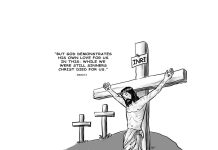
(Due to its timeliness, we yield this space to the statement of Social Watch Philippines, an organization advocating for people-centered health policies. – Ed.)
TO TRULY attain universal healthcare and emphasize healthier communities and lifestyles, President Ferdinand “Bongbong” Marcos Jr. should develop his on landmark tobacco-control program.
We are now gaining positive momentum in our tobacco-control agenda. Despite being hampered by the passage of the vaping law last year, we trust that the President will build on the gains built by his predecessors and leverage these moving forward. We pose this question to PBBM: What is your landmark program to protect Filipinos from the dangers of tobacco products?
Previous administrations prioritized the passage of tobacco-control legislation recognizing its potential to address multisectoral issues. The late President Benigno “Noynoy” Aquino signed Sin Tax Reform Law, paving the course for higher cigarette and liquor prices. Former President Rodrigo Duterte continued this endeavor and passed Republic Act 11467, a law imposing additional excise taxes on alcoholic beverages and e-cigarettes. Both policies fund the Universal Health Care (UHC) Program while providing a safer livelihood for tobacco farmers.
At the onset of his term, Duterte signed Executive Order (EO) 26, prohibiting smoking within enclosed public places and public conveyances nationwide, except in designated smoking areas (DSAs).
The President should examine New Zealand’s progressive regulation. The country is the first to implement an annually rising smoking age and ban the sale of cigarettes to anyone born after the year 2008.
To become a truly transformative administration, we ask the President to ensure an enabling environment and underscore prevention efforts further. Tobacco is the country’s leading risk factor for Non-Communicable Diseases and significantly contributes to Communicable Diseases, specifically tuberculosis. It is evident that its economic cost outweighs any benefit.
According to the Department of Health, deaths from tobacco-related diseases are increasing from 112,112 in 2019 to around 115,000 annually. In 2021, tobacco products’ economic, health, and social burden amounted to PhP365.79B. The direct medical costs comprised the most significant part of the burden at P247 billion, followed by indirect cost due to premature death at P73 billion, and indirect cost due to morbidity at P30.7 billion.
The President should fulfil his commitment to uphold public health amidst alleged conflicted interests and interference.







